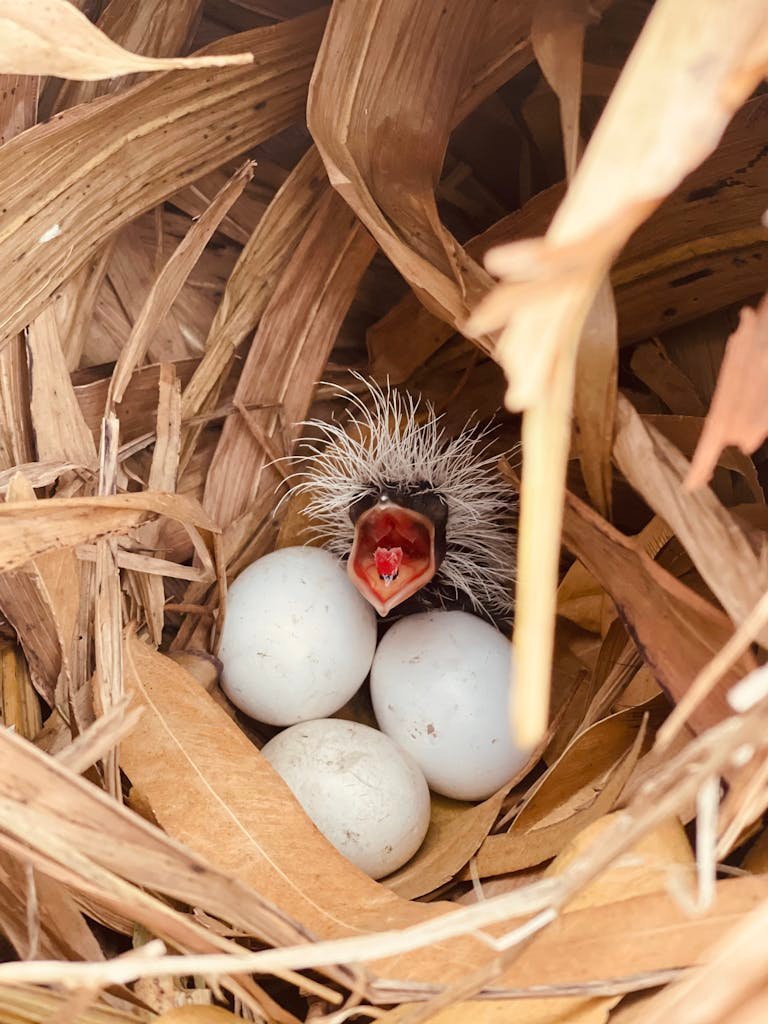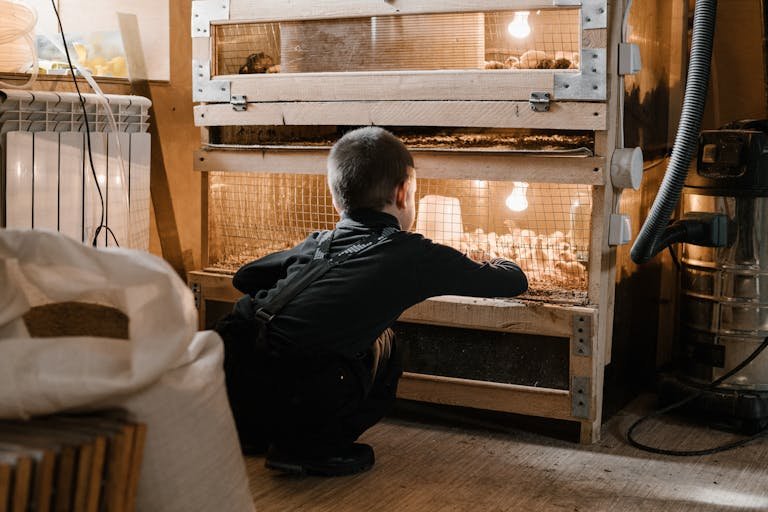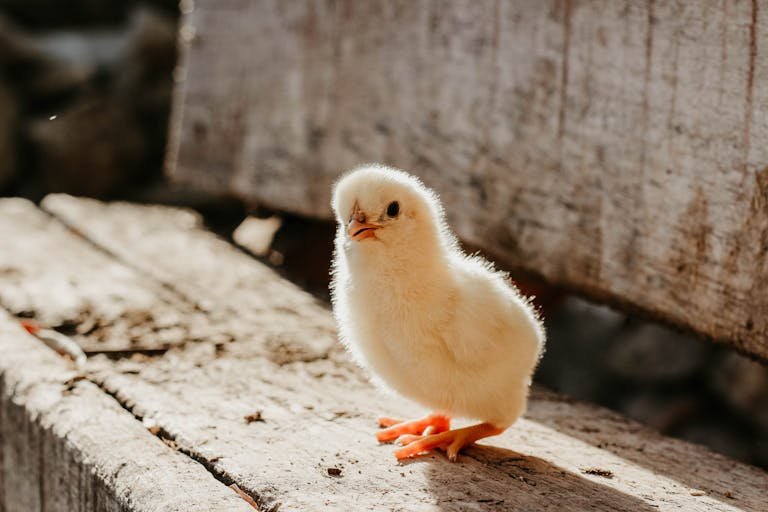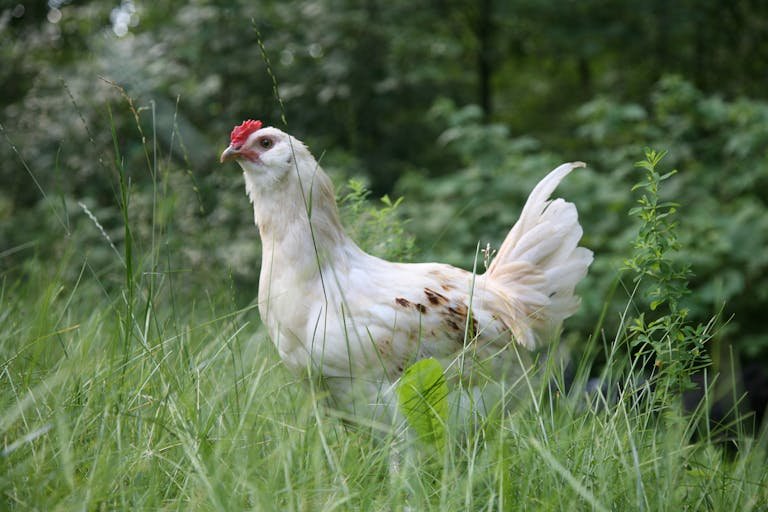Will a Raccoon Kill Chickens? Protect Your Flock Now!
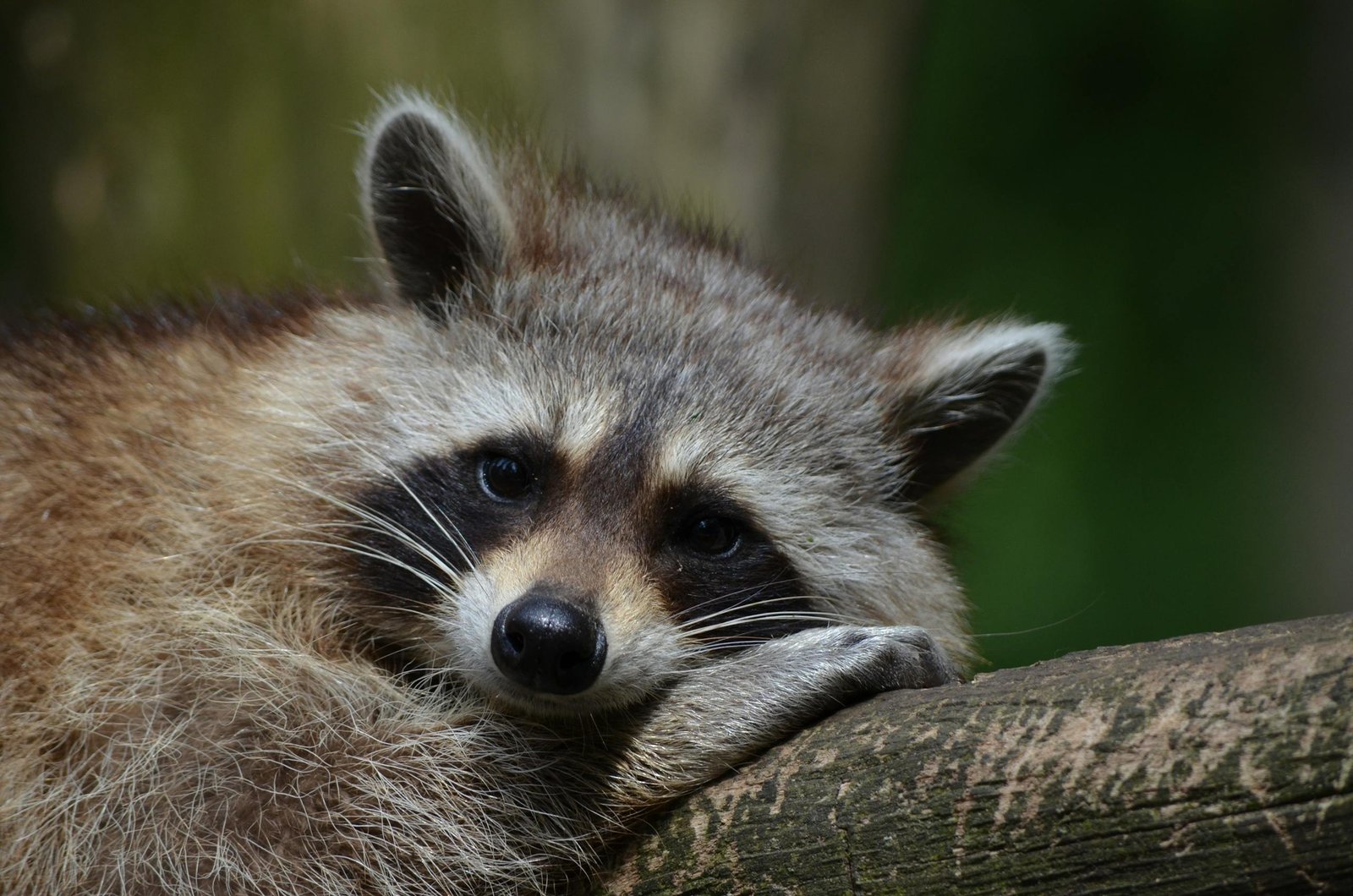
Yes, raccoons can kill chickens.
This is a harsh reality for many chicken owners, and understanding the threat posed by raccoons is essential for keeping your flock safe. These clever, nocturnal creatures have an unfortunate knack for finding ways into chicken coops, often resulting in tragic outcomes for your chickens. In this comprehensive guide, I’ll cover everything you need to know about Will a Raccoon Kill Chickens? how they operate, and, most importantly, how to protect your chickens from these predators.
Raccoons: A Threat to Your Flock
Raccoons are known to be fairly smart and quite capable of adapting to almost any situation. They are known to be `opportunistic feeders’ so once the birds come on sight they will make sure to have a good meal out of it includin the chickens. A start towards self-protection from aggressive behaviors is to comprehend the actions of these people and their routines.
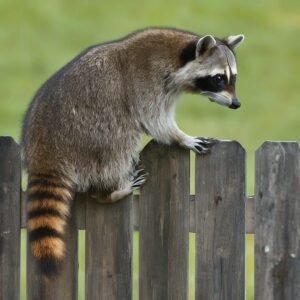
Why Raccoons Target Chickens
- Opportunistic Feeding: Raccoons are mainly identified as omnivores since they feed on both animal products and plant matter. This means that chickens are an attractive target for consumption since they are easy to get and very nutritious sources of protein.
- Climbing Abilities: Raccoons are agile creatures, especially when it comes to climbing structures like fences, trees or even roofs to get to your chicken house. This gives them the ability to access even the most hardened areas that may appear to be fortified.
- Sharp Claws and Strong Jaws: They are equipped with strong claws and muscular jaw that enable them to breach through flimsy structures such as wooden structures used in housing poultry.
How Raccoons Attack
Understanding how raccoons attack chickens will help you recognize the signs of their presence and take preventive measures.
Nighttime Raids
- Nocturnal Predators: Night is the most appropriate time when raccoons are most active hence becoming the most dangerous time for chickens. They usually strike at night when the chicken, their main source of food, are most vulnerable since they cannot fly to escape.
- Silent Hunters: Raccoons can understood to move almost silently. They move towards these coops cautiously so that they do not make noises that may wake up the chicken or their guards.
Predatory Instincts
- Killing for Food: Raccoons have a strong predatory instinct and will kill chickens for food. They are not always satisfied with one bird and may kill multiple chickens in a single night.
- Decapitation: One telltale sign of a raccoon attack is that chickens are often found decapitated. Raccoons have a habit of biting off the heads of their prey, even if they don’t consume the entire bird.
Destruction of Property
- Damage to Coops: Raccoons are carnivores and will kill chickens because of the instinctive urge to hunt for food. They are not always satisfied with one bird and can decapitate numerous chickens in one night.
- Scattered Feed and Bedding: Invaders can turn a raccoon’s house into a mess, with feed strewn about, bedding ripped up, and nesting boxes knocked over.
Signs of a Raccoon Attack
Understanding the signs of raccoon attack will enable a farmer to prevent or limit the attacks in future. Here’s what to look out for:
Physical Evidence
- Bite Marks: Look for bite marks around the neck or head of your chickens. Raccoons tend to bite at the neck, leading to fatal injuries.
- Missing Heads or Limbs: A typical indication of raccoon attacks is when one comes across their chickens with their heads or limbs severed.
- Broken Eggs: Raccoons are also known to steal and eat eggs, leaving behind broken shells.
Damage to the Coop
- Torn Wire or Mesh: Raccoons are vigorous and are capable of ripping a thin wire or mesh to get to the other side.
- Pry Marks: This may reveal pry marks around doors or windows where raccoons were eager to get into the house.
Raccoon Tracks
- Footprints: Raccoon tracks are easily recognizable, as each paw leaves an imprint of five fingers, approximately the size of a human’s palm. Look in and around your coop & run areas for these tracks.
Preventing Raccoon Attacks
Now that you understand how raccoons operate, let’s discuss the most effective ways to protect your chickens. Prevention is the key to avoiding the devastation of a raccoon attack.
1. Secure Coops and Runs
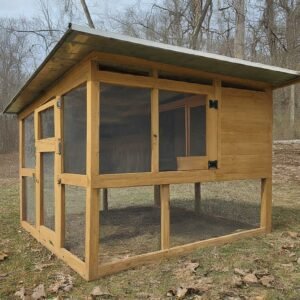
- Use Sturdy Materials: Build your coop and run using sturdy materials such as hardware cloth rather than chicken wire. Fences made of chicken wire are rather ineffective for raccoons, as they manage to cut through them easily, while hardware cloth is much sturdier.
- Check for Gaps: Check your coop often and look for any cracks or crevices that raccoons may be able to gain access through. Tiny cracks in the building could be used as an opportunity of entry by these wise animals.
- Lock Doors and Windows: Use secure latches that raccoons can’t open. Remember, raccoons have nimble fingers and can manipulate simple latches, so opt for locks that are raccoon-proof.
2. Install Electric Fencing
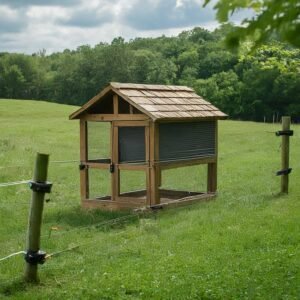
- Electric Fencing: It is important to note that an electric fence can be quite effective in that pursuit. When the raccoon puts their hand on the fence it is given a light electric shock so that it does not do it again.
- Positioning: Make sure that the electric fence has been placed all rounds the perimeters of the chicken run and coop for optimum security..
3. Use Motion-Activated Lights
- Deterrence: Raccoons do not like light and putting artificial lights at some areas where you erect your coop can scare the raccoons away.
- Solar-Powered Options: Solar lights can be used in order to reduce the amount of money spent on electricity and also ensure that the lights function efficiently.
4. Remove Potential Attractants
- Secure Food: Store chicken feed in airtight, raccoon-proof containers. Avoid leaving food out overnight, as this will attract raccoons and other pests.
- Remove Water Sources: Raccoons are also drawn to water ensure you remove all sources of water that are not necessary in and around the coop.
5. Consider Livestock Guardian Animals
- Dogs: Some breeds used as livestock guardian animals like the Great Pyrenees or Anatolian Shepherd are actually really good raccoon deterrent. They will help you know of any intruders and can scare off raccoons if any are present within the compound.
- Other Animals: Some people also use donkeys or llamas as livestock guardians, although dogs tend to be the most effective against raccoons.
How to React After a Raccoon Attack
Nonetheless, all your precautions might not prevent you from falling prey to raccoon attacks. Here’s what you should do if you find evidence of an attack:
1. Assess the Damage
- Check for Injured Chickens: Check your flock for injuries. Any affected chicken should be placed in a separate group or isolated in a safe and warm area and should be treated immediately.
- Inspect Your Coop: Find out how the raccoon was able to penetrate the building and isolate the points of entry.
2. Remove the Raccoon
- Trap and Relocate: If raccoons are persistent, then it may be possible to use a live trap and take them elsewhere. When doing this, ensure to consider the wildlife regulations within your state.
- Consult a Professional: If you’re unsure about handling the raccoon situation yourself, contact a wildlife removal expert.
Additional Tips for Raccoon Prevention
Here are some extra tips to ensure your chickens stay safe:
- Elevate the Coop: It is equally important to point out that raising your coop off the ground could present difficulties to raccoons.
- Use Heavy-Duty Latches: Choose good quality latches that raccoons cannot easily tamper with and gain access to the containment area.
- Trim Nearby Trees: Raccoons are exceptional climbers and will perchance climb on trees to reach your coop, so trim trees frequently.
The Importance of Regular Monitoring
- Frequent Inspections: It is also important to inspect your coop and run often for signs that a predator has messed with it or areas that could be a weak point. Such a strategy can be helpful in preventing vulnerable sites from being located by raccoons in the first place.
- Security Cameras: Consider installing security cameras around your coop. Not only will this help you identify potential predators, but it will also allow you to monitor your chickens’ safety.
Read Also: Stop Your Chickens’ Diarrhea Now: Effective Home Remedies
Final Thoughts
In overall, raccoons are indeed a very big threat to chickens, but I believe if you take certain measures you will be safe from them. Based on how raccoons live, protecting your chicken’s pens and eliminating things that raccoons like, you lessen the risk of raccoon attacks. The best thing you ought to do is to act right now if your chickens are going to be safe and secure. It becomes your responsibility to protect your chickens at all times.
That way, you would be sure none of the raccoon—which has wreaked havoc in many homes—is lurking around your house ready to strike at anytime.
